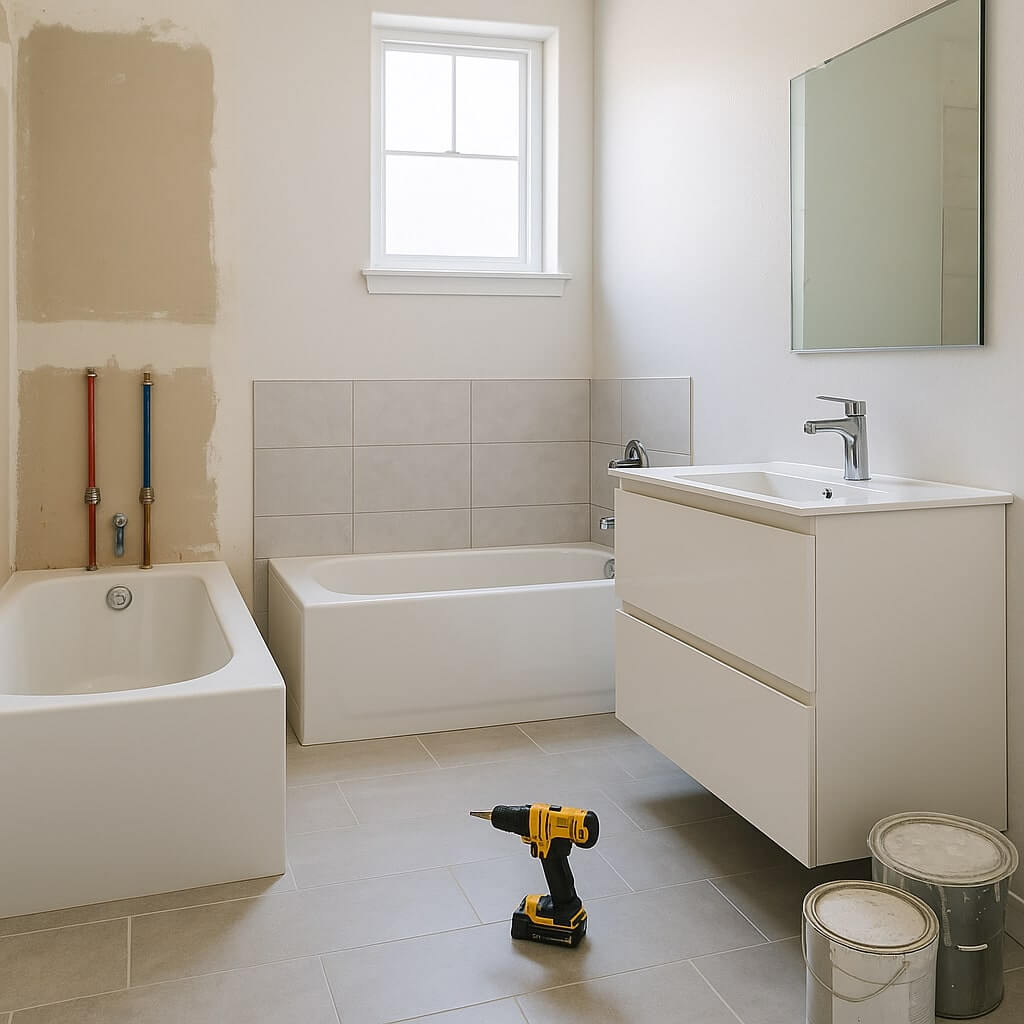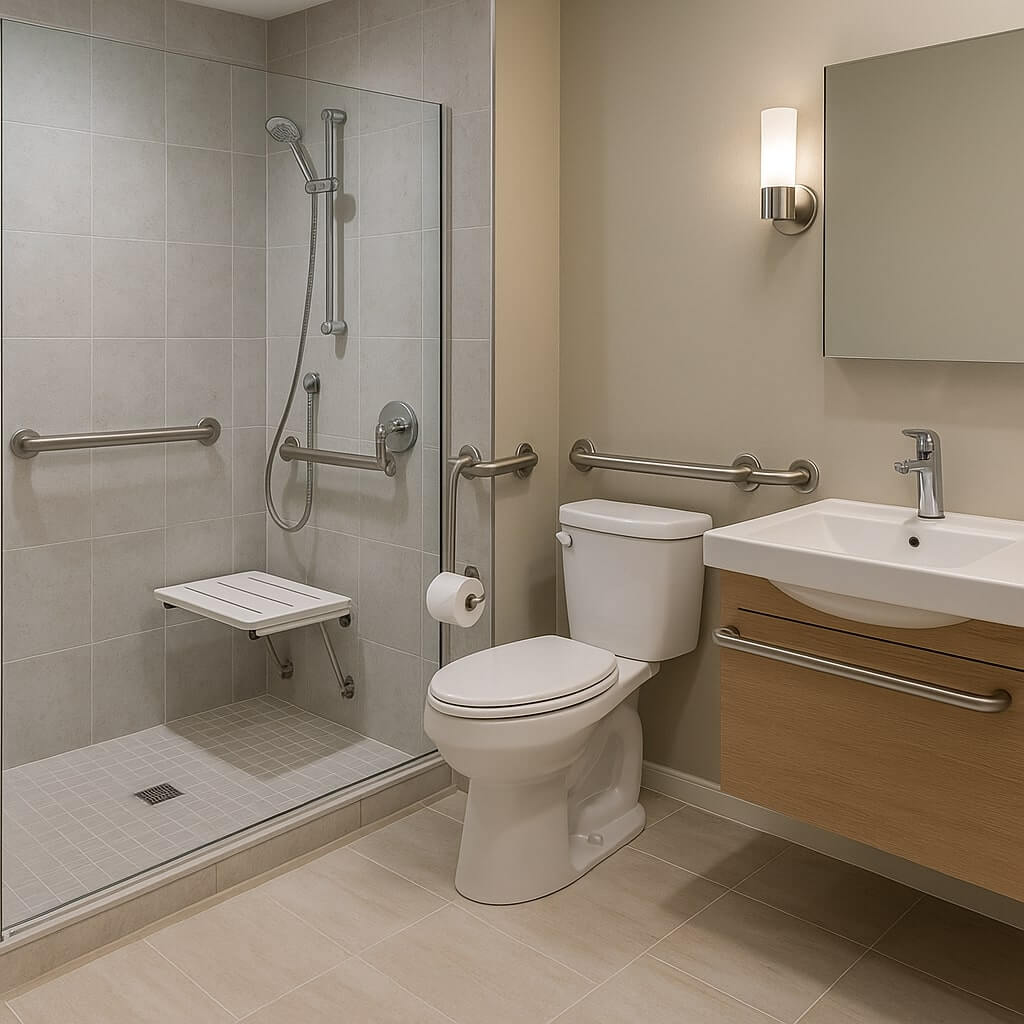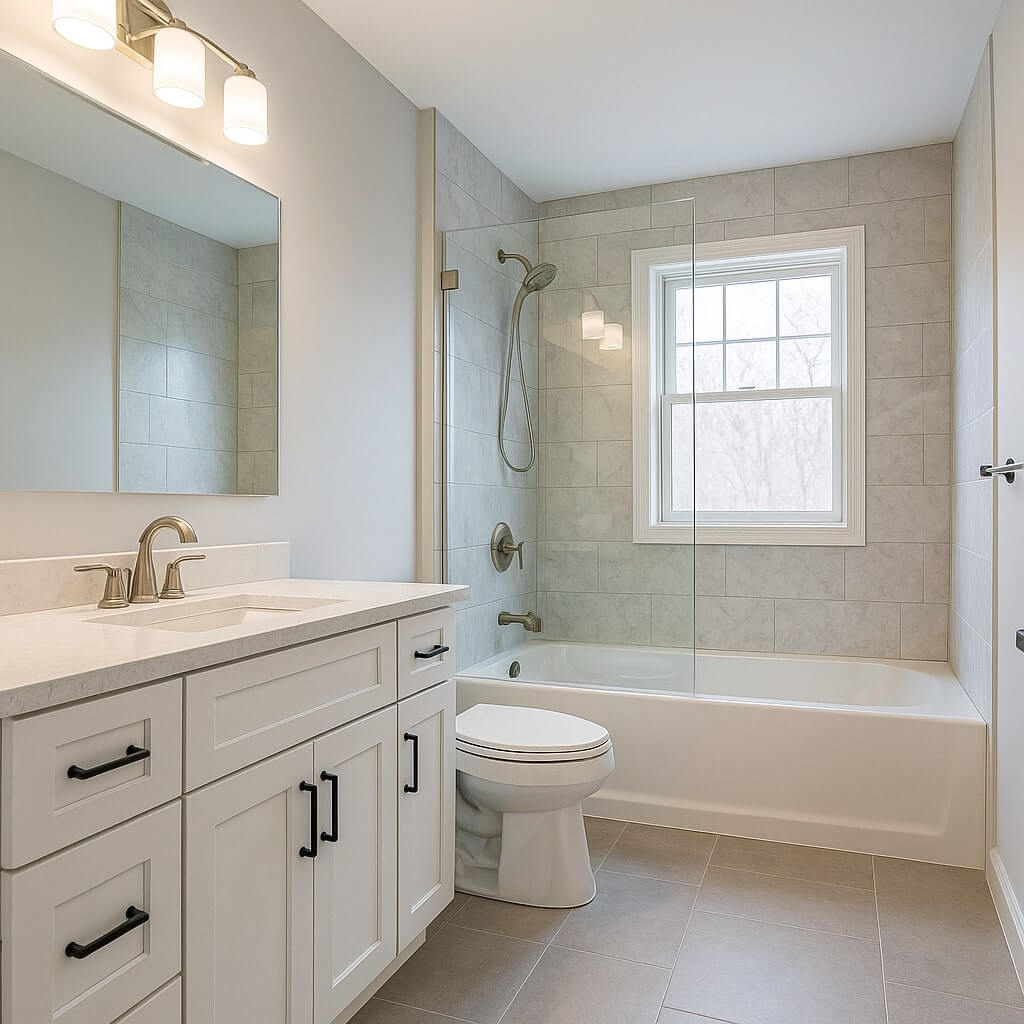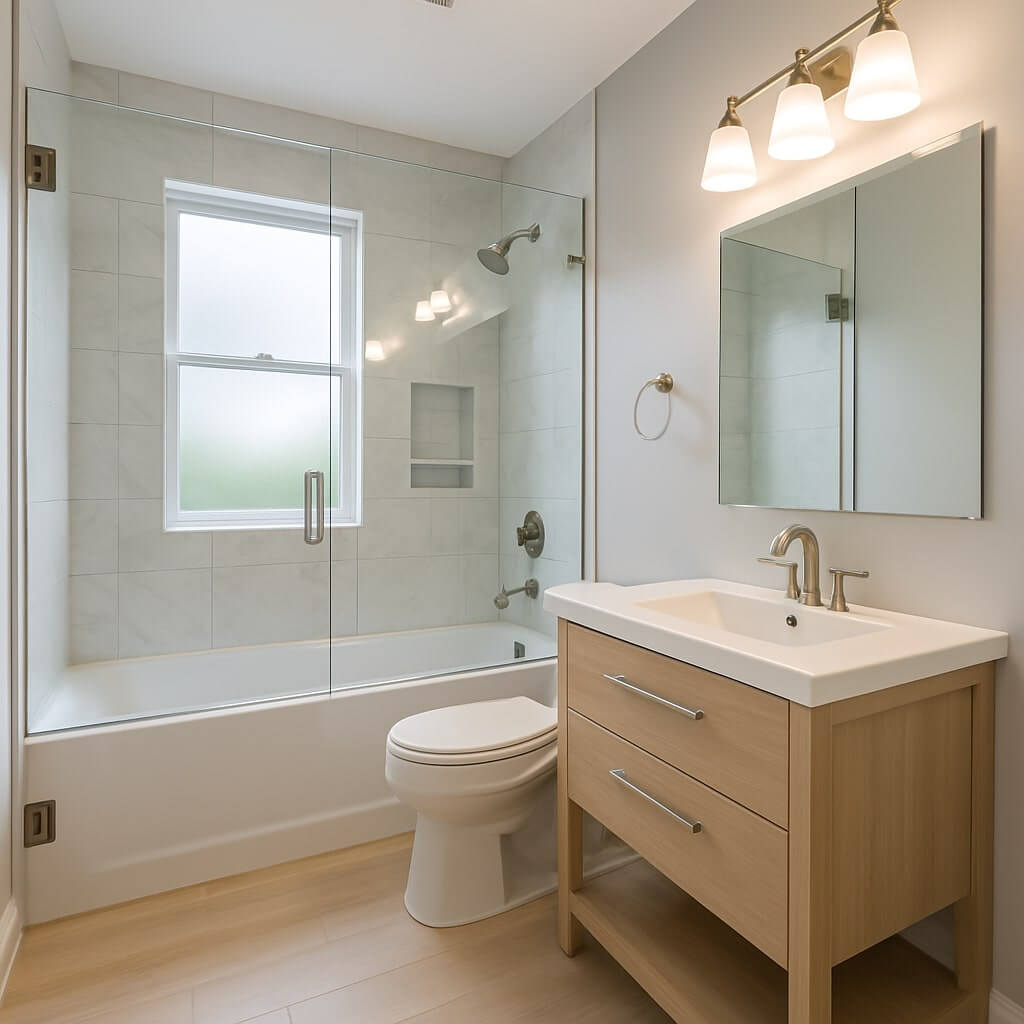A bathroom remodel is one of the most popular home improvement projects, but many homeowners ask the same question before starting: How long does a bathroom remodel take? The answer depends on several factors including the size of the bathroom, the complexity of the work, material availability, and whether you’re doing a DIY or hiring professionals.
In this article, we’ll break down the typical timeline for a bathroom remodel, explore key factors that influence the duration, and answer common FAQs to help you plan your project effectively.
Average Bathroom Remodel Timeline
On average, a standard bathroom remodel takes about 3 to 6 weeks from demolition to final touches. However, the entire process—from initial planning to project completion—can take anywhere from 6 to 12 weeks, especially if you include design, shopping, and permit approvals.
Here’s a general week-by-week breakdown:
Pre-Construction Phase (2–4 Weeks)
- Planning & Design: Choosing layout, materials, and finishes (1–2 weeks)
- Permits & Approvals: If required, can take 1–3 weeks depending on location
- Ordering Materials: Special-order items may take longer to arrive
Construction Phase (3–6 Weeks)
- Demolition (1–3 Days): Removal of old fixtures, tiles, and cabinetry
- Rough-In Work (3–7 Days): Plumbing and electrical updates behind walls
- Structural Work (if any): Reinforcements, layout changes (2–5 Days)
- Drywall & Painting (2–4 Days): Wall prep and painting
- Flooring Installation (1–3 Days): Tile, vinyl, or other surfaces
- Fixture Installation (3–7 Days): Toilet, sink, shower, vanity, lighting
- Finishing Touches (2–4 Days): Mirrors, shelves, accessories, caulking
Key Factors That Affect Remodel Duration
1. Bathroom Size
- Half Bath (Powder Room): 1–2 weeks
- Full Bathroom: 3–6 weeks
- Master Bathroom: 4–8 weeks (more fixtures and customizations)
2. Extent of Remodel
- Cosmetic Updates Only: 1–2 weeks (painting, replacing faucets, etc.)
- Full Gut Renovation: 4–6+ weeks (walls, pipes, flooring, fixtures)
3. DIY vs. Professional Remodel
- DIY Projects often take longer due to learning curves, limited time, and fewer tools.
- Professional Contractors can speed up the process with experience and a full crew.
4. Permit & Inspection Delays
In areas where permits are required, waiting for approvals and inspections can add days or even weeks to your schedule.
5. Material Availability
Backorders or long lead times for tiles, bathtubs, or custom vanities can delay the process.
6. Unforeseen Issues
Water damage, mold, old wiring, or structural surprises can extend your timeline unexpectedly.
Tips to Speed Up Your Bathroom Remodel
- Plan Ahead: Choose materials and fixtures before starting.
- Hire Licensed Pros: Avoid costly rework and speed up inspections.
- Have a Contingency Budget & Timeline: Plan for unexpected delays or costs.
- Avoid Scope Creep: Stick to your original plan to avoid extra time and expenses.
FAQs: Bathroom Remodel Timeline
In most cases, no. Once construction starts, the bathroom is out of service until the work is completed. If it’s your only bathroom, consider renting a portable toilet or staying elsewhere temporarily.
A DIY remodel can take 2 to 3 times longer than hiring professionals—6 to 12 weeks or more, especially if you’re learning as you go.
Start planning at least 1–2 months before you want the project to begin. This gives time for budgeting, hiring, and material selection.
Change orders can delay the remodel significantly. Always try to finalize your selections before demolition begins.
Yes, small bathrooms generally require less labor and fewer materials, so the remodel is usually faster—but complex layouts can still extend the timeline.
Conclusion
A bathroom remodel is an exciting way to boost your home’s comfort and value—but it’s essential to have realistic expectations about the timeline. While the average construction time is around 3 to 6 weeks, planning, approvals, and unexpected delays can stretch the project to 8–12 weeks overall.
Understanding the key factors that affect the timeline—like bathroom size, remodel scope, permits, and material availability—will help you plan better and avoid surprises. Whether you’re tackling it yourself or hiring a contractor, a well-organized approach ensures a smoother, faster renovation experience.




